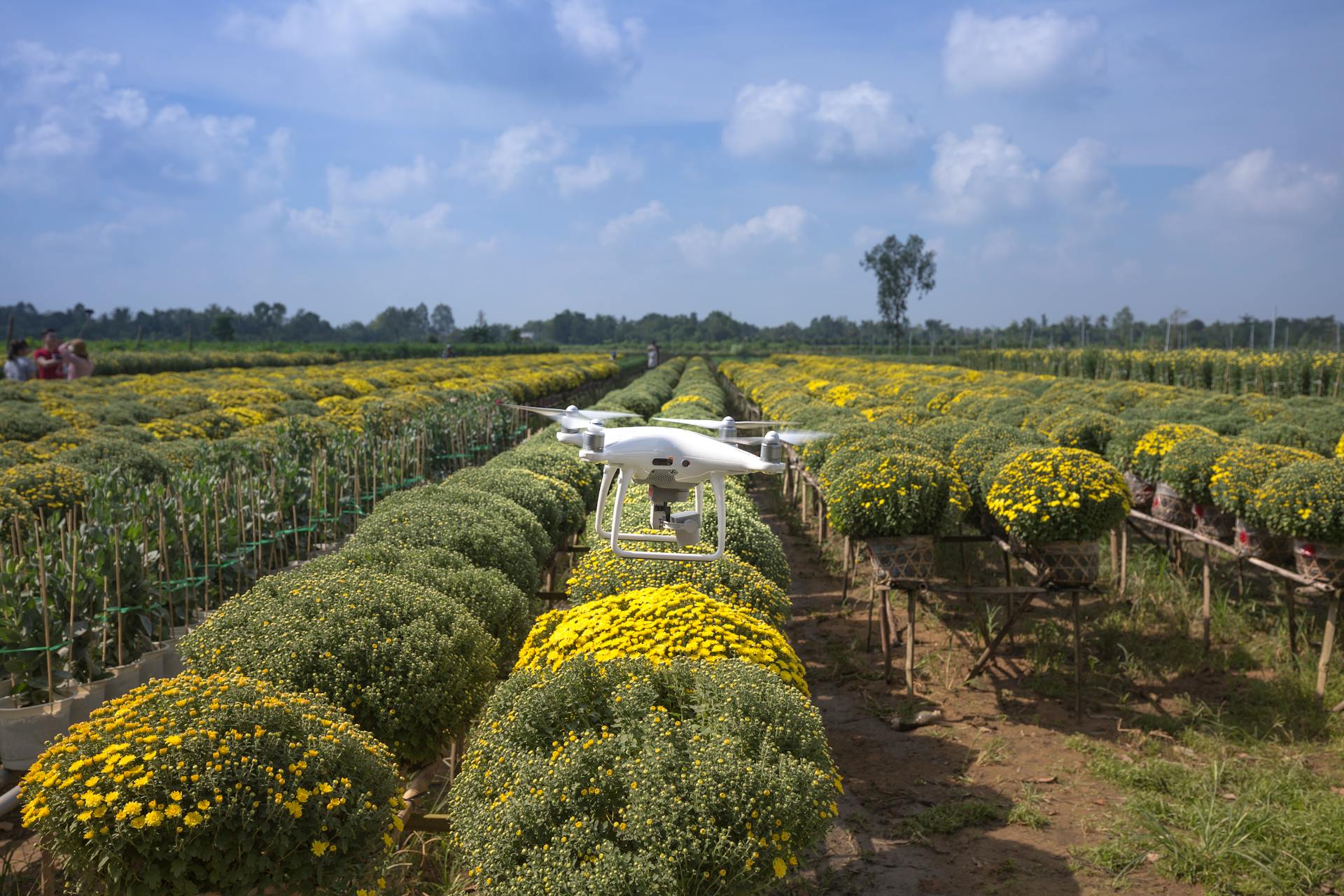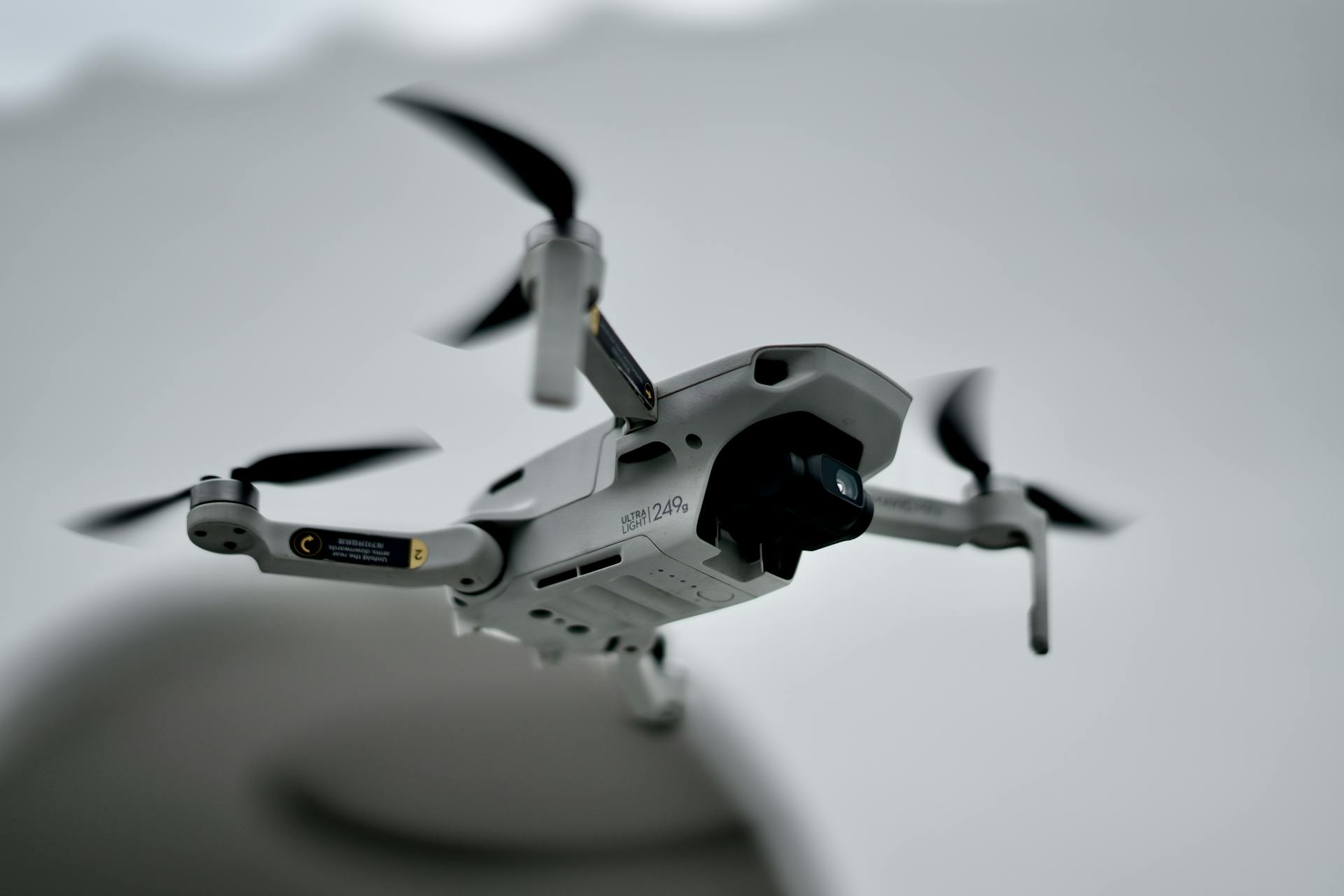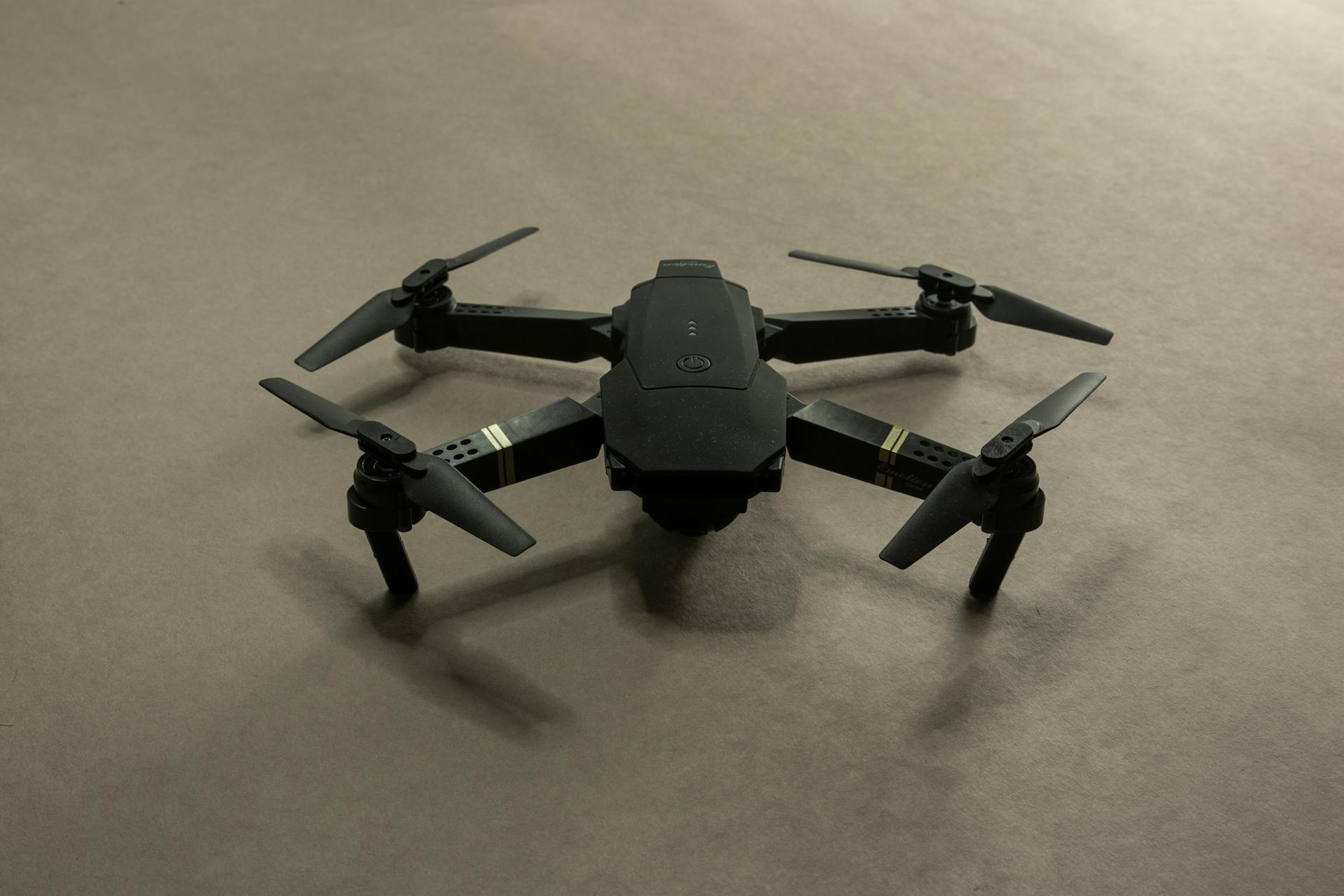
The Ar-1 drone, a prime example of a weaponized drone, poses significant dangers to civilians and military personnel alike. Its ability to carry a payload of up to 45 kg makes it a formidable force on the battlefield.
The Ar-1's design allows it to fly at speeds of up to 320 km/h, making it nearly impossible to intercept. This speed also enables it to quickly reposition and launch attacks from unexpected angles.
The drone's advanced sensors and navigation system allow it to operate with a high degree of autonomy, reducing the need for human intervention and increasing its effectiveness in combat situations.
A different take: Ar Drone 1
What Makes the Ar-1 Unique
The AR-1 is designed to carry and fire a 5.56mm assault rifle or a 9mm submachine gun, making it a unique addition to any infantry force.
This small arms drone is aimed by the user using a camera, allowing for precise targeting.
The AR-1 can be deployed by infantry forces on the ground in an ad-hoc method, eliminating the need to call for support from higher.
This means that infantry forces can quickly and easily deploy the AR-1 themselves, without having to wait for it to be in their airspace or worry about bad weather blocking its view.
Ar-1 Theoretical Luminosity
The AR-1's ability to clear the fog of war is a game-changer. It can scout rooftops and windows for fighters, allowing units to engage them with precise fire while reducing the risk of unwanted casualties.
In urban environments, the AR-1 can be used to envelop the enemy and force them into the drone's fire. This makes it difficult for the enemy to use cover and concealment to their advantage.
The AR-1's precision is a major advantage, as it can reduce the risk of inflicting collateral casualties. This is particularly important in areas with civilians.
Using a rifle or SMG-armed drone like the AR-1 can simplify the job of an infantry squad leader. They won't need to call for support from higher or wait for the drone to be in their airspace.
The AR-1 can be deployed by infantry forces on the ground in an ad-hoc method, making it a versatile tool in combat situations.
Potential Issues
The AR-1's limited battery life of 25 minutes restricts its range and capabilities. This means you won't be able to use it for extended periods of time.
Its size makes it a big target, which could be a problem in a real-world scenario. The drone's cruise speed is 46.8 km/h, but it needs to slow down to let the user aim its weapon.
The aiming system is a bit rudimentary, with the camera positioned behind the weapon's front sight. This requires the drone to get close to the target for any sort of accuracy.
An optic option like a red dot could increase accuracy, but tracer rounds would also attract attention to the drone. If the AR-1's weapon malfunctions, it can't be fixed until the drone lands.
This limits the platform's fighting ability, and if the drone goes down, the enemy could gain access to an extra rifle.
FBI Investigations
The FBI has been investigating several cases in the US where drones were weaponized to carry homemade bombs. These investigations are ongoing, with FBI Director Christopher Wray mentioning them in a Congressional hearing.
FBI Director Christopher Wray is urging Congress to pass legislation to help federal authorities counter malicious drone activity. This is because the threat of drones being used for attacks on US soil is growing.
The FBI has located hundreds of drones acting in violation of federal law while protecting major public events, such as the Super Bowl and New Year's Eve in Times Square.
Frequently Asked Questions
Is it legal to weaponize a drone?
No, it is not legal to attach a weapon to a drone, as it poses a risk of causing death or serious bodily injury. According to the FAA, operating a weaponized drone is a serious violation of federal law.
What is the most powerful military drone?
The MQ-9 Reaper is widely considered the most powerful military drone, with a proven track record of carrying out armed conflicts and generating significant controversy. Its numerous modifications and millions of flight hours have solidified its position as a major success story in modern drone warfare.
Sources
- https://www.twz.com/sea/mako-is-a-jet-ski-turned-into-a-weaponized-drone
- https://nationalinterest.org/blog/buzz/ar-1-what-happens-when-you-give-drone-assault-rifle-207772
- https://intpolicydigest.org/terrorists-and-the-weaponization-of-drones/
- https://www.pcmag.com/news/fbi-probing-cases-of-weaponized-drones-carrying-bombs-in-us
- https://www.mic.com/impact/how-drones-are-being-weaponized-used-to-stalk-harass-people-18784714
Featured Images: pexels.com


